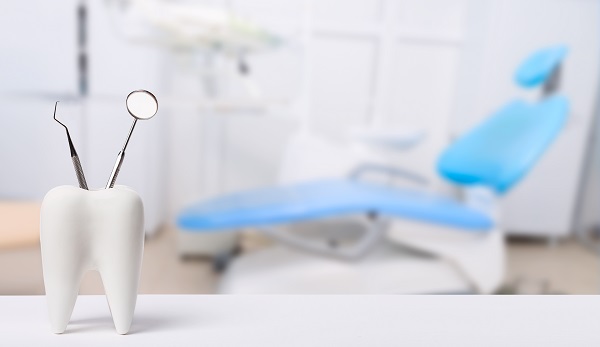FAQs about PPE per CDC Guidance for Family Choice Dental

PPE per CDC guidance is unique wearable coverings designed to protect dental professionals in Family Choice Dental from exposure to infections, such as the coronavirus. The PPE is worn during dental procedures and when cleaning sterilizing dental instruments. This article answers some questions about PPE per CDC guidance.
What is PPE?
PPE means personal protective equipment and it is meant to stop cross-infection between dental health care personnel and patients. PPE per CDC guidance typically includes face masks, gloves, protective eyewear, face shields and protective clothing such as a jacket, lab coat and reusable or disposable gown.
When is a surgical mask worn?
Dental professionals wear a surgical mask that protects their nose and mouth during dental procedures, which may generate aerosols, sprays of blood or body fluids. Additionally, surgical masks protect the dental professional when cleaning instruments manually. A surgical mask also shields patients from microorganisms expelled by the wearer. The surgical mask is replaced between patients or during a procedure if it gets wet.
When do dentists wear eyewear?
Dental healthcare professionals wear protective eyewear with side shields or face shields during any procedure that will probably generate spatter of debris or sprays of body fluids or blood. Reusable protective eyewear should be cleaned with water and soap, and when visibly contaminated, disinfected before next use.
When is protective clothing necessary?
Dentists wear protective clothing such as jackets and gowns to prevent contamination of regular clothing and to shield the skin from exposure to body fluids and blood. Sleeves should cover the forearms. The protective clothing should be replaced if it gets visibly contaminated by body fluids or blood. The protective clothing should be taken off before leaving the dental office, according to PPE per CDC guidance.
Are surgical masks sterilized for reuse?
Surgical facemasks are considered an important part of PPE per CDC guidance. As the FDA notes, surgical masks are not created for multiple uses. If the mask gets contaminated or damaged, or if it becomes harder to breathe through the mask, it should be removed, safely discarded and replaced with a new mask.
A single-use mask is disposable and designed to be used for a single procedure. It should not be reprocessed and used for another patient. If there are no reprocessing instructions for the device, it should be treated as single-use and disposed of properly, regardless of labeling.
Why do dental professionals wear gloves?
Gloves are an important part of PPE per CDC guidance. Dental professionals wear them to avoid hand contamination when touching blood, saliva, mucous membranes or infectious materials and to minimize the risk of transferring microorganisms on their hands to patients during patient care. Gloves are single-use only and should be disposed of properly after use. Hand hygiene is important after removing the gloves.
Does wearing gloves remove the need for handwashing?
No, it does not. Gloves can be compromised or torn during use, and hands can become stained when removing the gloves. Also, bacteria can multiply quickly in humid environments under the gloves. Therefore, dental professionals will ensure their hands are dry before wearing gloves. Hand washing should be done immediately after removing gloves.
Wearing PPE per CDC guidelines
When a dental emergency occurs and additional questions regarding PPE per CDC guidance arise, contact the dental office for more information.
Request an appointment here: https://familychoicedentistry.com or call Family Choice Dental at (505) 634-5657 for an appointment in our Albuquerque office.
Check out what others are saying about our services on Yelp: Read our Yelp reviews.
Related Posts
Oral cancer screening is an essential preventive measure in maintaining overall oral health. The early detection of oral cancer can significantly improve the chances of successful treatment and recovery. As a general dentist, it is vital to inform patients about the importance of regular oral cancer screenings and how these screenings can help identify potential…
Considering a smile makeover and not sure where to start? Read on to learn more. Many people avoid smiling due to dental imperfections. A smile makeover may be the answer. A dentist can improve your smile with cosmetic procedures like teeth whitening, bonding, and veneers. The right professional for the treatment is the key to…
Sometimes, it takes more than one procedure to get the smile of your dreams. A dental provider can create a custom plan called a smile makeover to enhance different aspects of your smile. It is best to ask a provider if a smile makeover is right for you, as they can give personalized professional advice.…
If your teeth are spaced irregularly, you might not have great self-esteem and may consider trying teeth straightening. Plus, the issue might change your oral hygiene habits. One reason is that food might get stuck in them and be difficult to remove. That can weaken the teeth and gums, leading to complications. Keep reading to…
